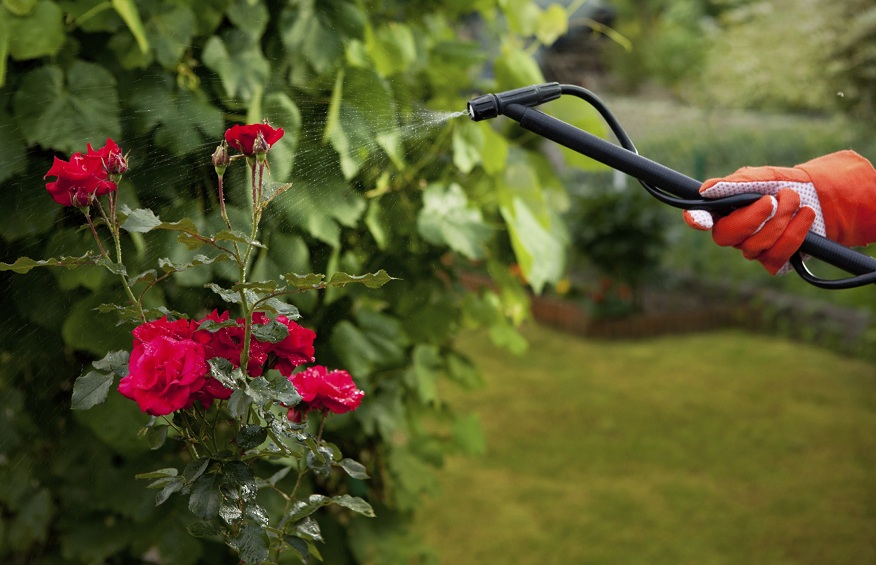Welcome to the wonderful world of gardening! Whether you have a sprawling backyard or a cosy balcony, there’s something magical about tending to your own little patch of green. However, as any seasoned gardener knows, pesky pests can quickly turn your garden paradise into a battleground.
But fear not, fellow green thumbs! In this blog post, we’ll dive into the secrets of keeping your garden pest-free and creating an environment where your plants can thrive. From identifying common garden pests to implementing natural pest control methods, we’ve got you covered.
So grab your gardening gloves, and let’s get started on our mission to reclaim our gardens from those unwanted invaders! It’s time to learn how to keep your garden pest-free and make it a haven for flourishing flora.
Identify Common Garden Pests
One of the first steps in keeping your garden pest-free is to identify common garden pests. These pesky creatures can wreak havoc on your plants and undo all of your hard work. By knowing what to look for, you can take early action to prevent infestations.
Keep an eye out for insects like aphids, which are small and usually found in clusters on plant stems and leaves. Other common pests include snails and slugs, which leave slimy trails behind them as they munch on your precious foliage. It’s also important to be aware of caterpillars, beetles, and mites that may be causing damage to your plants. Identifying these pests early will give you a head start in protecting your garden!
Cultivate a Healthy Garden Environment
Cultivating a healthy garden environment is crucial in keeping pests at bay. Start by ensuring proper soil health and drainage to prevent the development of diseases that attract pests. Regularly remove weeds, as they can serve as breeding grounds for unwanted visitors.
Additionally, promotes biodiversity by planting a variety of flowers, herbs, and vegetables. This attracts beneficial insects like ladybugs and lacewings that feed on pests. Avoid overcrowding plants, as it can create humid conditions ideal for pest infestations. By creating a thriving ecosystem within your garden, you’ll naturally discourage the presence of destructive pests.
Implement Natural Pest Control Methods
Keeping your garden pest-free doesn’t have to involve harsh chemicals or expensive treatments. There are plenty of natural and eco-friendly ways to ward off unwanted pests and maintain a healthy garden environment.
Companion Planting
One effective way to keep pests at bay in your garden is through companion planting. This practice involves pairing certain plants together that have beneficial relationships, such as repelling pests or attracting beneficial insects.
For example, planting marigolds alongside tomatoes can help deter nematodes and other harmful insects. Similarly, growing basil near your peppers can ward off aphids. By strategically placing these companion plants throughout your garden, you can create a natural defence system against unwanted pests without relying on chemicals or pesticides.
Attract Beneficial Insects
Creating a garden that is pest-free can be achieved by attracting beneficial insects. These helpful creatures act as natural predators, targeting and eliminating common garden pests. To attract them to your garden, include plants that are known to appeal to these insects. Flowers like marigolds, daisies, and cosmos are favourites of ladybugs and lacewings, while herbs such as dill, fennel, and cilantro will attract parasitic wasps.
By providing a diverse range of plants in your garden with different colours and fragrances throughout the growing season, you’ll create an inviting environment for beneficial insects. Additionally, consider setting up insect hotels or creating small water sources like birdbaths or shallow dishes filled with pebbles for butterflies and bees to drink from. By focusing on attracting these natural allies to your garden space, you’ll have a team of helpers working alongside you to keep pesky pests at bay!
Use Physical Barriers
Another effective method to keep your garden pest-free is by using physical barriers. These barriers act as a deterrent for pests, preventing them from accessing and damaging your plants. One common physical barrier is fencing, which can help keep larger pests like rabbits and deer out of your garden. Additionally, you can use row covers or netting to protect specific crops from insects or birds.
Physical barriers not only provide protection but also allow for better control over the environment in which your plants grow. By creating a barrier between your garden and potential pests, you are taking proactive steps towards maintaining a healthy garden ecosystem. So consider incorporating physical barriers into your gardening routine to prevent pesky intruders from wreaking havoc on your beloved plants!
Make DIY Pest Sprays
Making DIY pest sprays can be an effective and natural way to keep your garden pest-free. You don’t have to rely on store-bought chemicals that can harm the environment or your plants. Instead, you can create your own homemade sprays using simple ingredients found in your kitchen or pantry.
One popular DIY pest spray recipe involves mixing dish soap with water. The soapy solution works by suffocating insects like aphids and mites, causing them to die off. Another option is creating a garlic spray by blending fresh garlic cloves with water and straining the mixture before spraying it onto affected plants. Garlic has natural insecticidal properties that repel pests such as slugs and snails.
Conclusion
By following these tips, you can keep your garden pest-free and ensure that your plants thrive. Remember to regularly inspect and monitor your garden for any signs of pests, use natural methods like companion planting and homemade sprays, and maintain a healthy balance in your soil. With a little bit of effort and diligence, you can create a beautiful and resilient garden without the need for harmful chemicals or pesticides. Happy gardening!

